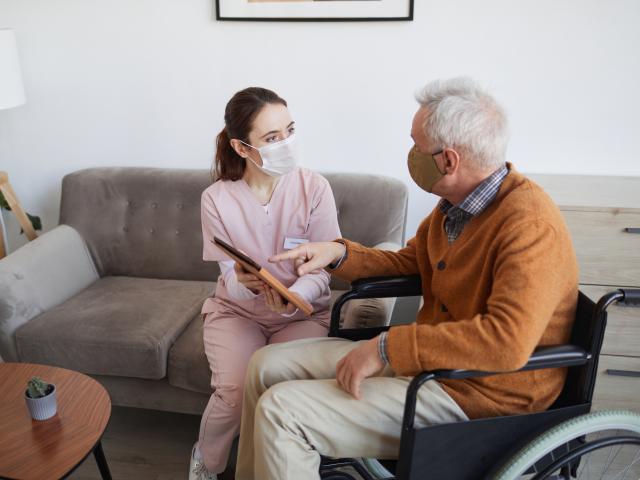
Call for Welsh care home staff to help with vital research
Researchers from University of Oxford are looking to find out more about how care home staff recognise and manage episodes when residents appear less well or are not their usual self.
The study, called Understanding CAre home Response to Episodes of acute decline (uCARE), is looking for care home managers, nurses, or carers from across the UK with at least one year’s experience to provide their experiences and opinions.
What do I need to do if I take part?
Taking part would involve talking to a researcher for up to one hour on the phone about your experiences of recognising and managing residents who are less well than usual.
If you are happy to go ahead, the researcher will arrange a time for a telephone interview at a time and date so that it is convenient.
Participation is confidential and all transcripts are anonymised. Involvement can be counted as Continuous Professional Development (CPD) and you will get a certificate to confirm participation. You will also receive £20 Amazon voucher for you or your care home for your time.
What is the purpose of the study?
Study lead, Dr Abigail Moore said: “We know that older people living in care homes sometimes experience episodes when they are less well than usual. Sometimes this is referred to as ‘not their usual self’ or ‘acute decline’.
“We want to know how care home staff recognise and monitor these episodes and how they decide which residents need input from a doctor or other healthcare professional and whether care home staff think bedside diagnostic tests would be helpful in care homes. This will help us to develop new approaches to assessing older people in care homes.”
The research is being organised by the Nuffield Department of Primary Care Health Sciences at the University of Oxford. The research is being funded by the Oxfordshire Health Services Research Committee.
Research in care homes
Stephanie Green Coordinator of ENRICH Cymru care home network said: “This study is a perfect introduction into your personal or your care home’s research career. It’s simple but effective and by listening to those on the front line can provide the information needed to motivate change.”
What are the next steps?
For further information or to find out about taking part please contact the research team.